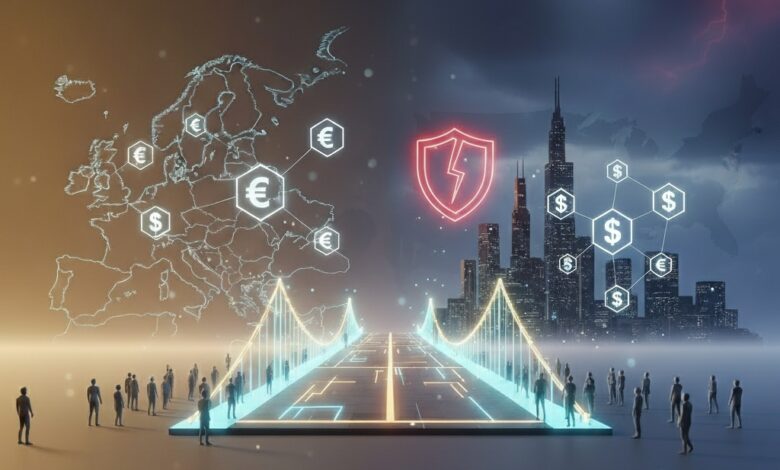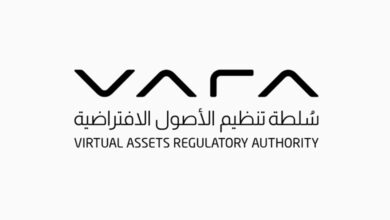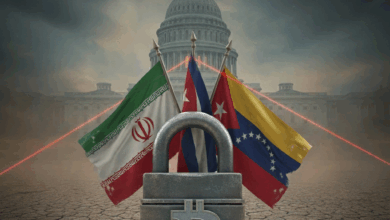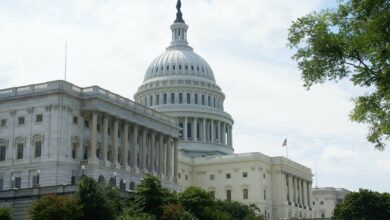Tokenized Stocks Surge, But Are Investors Protected?

Robinhood, Gemini, Kraken, and other major crypto players are expanding tokenized stock offerings in Europe, while Coinbase and Robinhood are seeking U.S. approval. But regulators and market leaders warn of risks to investors and market integrity, according to a Reuters report.
Tokenized Stocks: A New Frontier for Markets
Tokenized stocks—blockchain-based instruments that mirror traditional equities—are being positioned as the next frontier in financial markets. By allowing shares to trade 24/7 and settle instantly, advocates say they could transform liquidity, reduce transaction costs, and modernize global markets.
According to tokenization tracker RWA.xyz, the value of tokenized public stocks geared toward retail investors surged to $412 million in September 2025, up from just a few million dollars a year earlier.
Robinhood, Gemini, and Kraken have already launched tokenized shares in Europe, while Coinbase, Robinhood, and Dinari are lobbying for approval in the U.S. Nasdaq has gone a step further, becoming the first major exchange to propose offering tokenized shares directly.
The Risks Behind the Hype
Despite the excitement, many tokenized stock products don’t carry the same rights and protections as traditional equities. A Reuters review of industry offerings found that many operate more like derivatives than actual shares—lacking voting rights, dividends, or direct ownership.
“You’re buying exposures to those shares through creating some sort of synthetic instrument,” said Diego Ballon Ossio, partner at Clifford Chance in London. “A lot of the burden gets shifted on you to understand what exactly it is that you’re buying.”
Most tokenized stocks today are issued by third parties like Ondo Global Markets and Dinari, with some backed 1:1 by underlying shares, while others simply track performance through derivatives. This creates counterparty risk for investors.
Industry Division and Regulatory Scrutiny
The lack of standardization is a growing concern. Different tokenized products tied to companies like Tesla (TSLA.O) and Nvidia (NVDA.O) come with different structures, rights, and disclosures.
“This inconsistency is a real big worry,” said Gabriel Otte, CEO of Dinari, which emphasizes full 1:1 collateralization.
Robinhood’s June launch of tokens tied to public companies, including a giveaway linked to OpenAI, drew pushback from OpenAI itself and scrutiny from European regulators. Robinhood confirmed its tokens are derivative contracts backed by fund units, not direct shares.
Kraken, however, insists its offerings meet the “gold standard,” with collateralization and investor protections. “Done right, tokenization enhances investor protections, rather than eroding them,” said Ian De Bode, chief strategy officer at Ondo Finance.
Regulatory Clash: U.S. vs. Europe
In Europe, tokenized stock trading is being handled under the MiFID derivatives framework, though experts argue these rules are insufficient for such novel products. The European Securities and Markets Authority (ESMA) has confirmed it is monitoring tokenization risks.
In the U.S., SEC Chair Paul Atkins has indicated a willingness to grant exemptions for tokenized securities, a move opposed by Wall Street heavyweights like Citadel Securities and the Securities Industry and Financial Markets Association (SIFMA). Both groups argue that sweeping changes to market structure should only happen through formal rulemaking.
“Just because a security is represented on blockchain, that doesn’t change the core investor protections and other provisions that apply to securities,” said Peter Ryan, head of international capital markets at SIFMA.
The World Federation of Exchanges (WFE) has also urged regulators to tighten oversight, warning that poorly structured products could fragment liquidity. Yet, the group expressed support for Nasdaq’s proposal, which would treat tokenized shares like traditional equities.
The Road Ahead
Coinbase is in discussions with the SEC about launching fully regulated tokenized securities that would grant investors the same rights as traditional shares, according to sources cited by Reuters.
The debate highlights a growing divide: are tokenized shares a revolutionary tool for global markets, or a regulatory loophole that puts investors at risk?
One thing is clear: as tokenization expands, the clash between innovation and investor protection is set to intensify.





